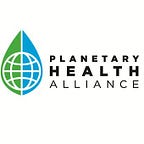A meeting for the planet, not to be missed
What’s new around the 2024 Planetary Health Summit & 6th Annual Meeting?
- Participate now! A LinkedIn Group has been established for preparations for the April Planetary Health Annual Meeting and Summit. It is being used to consult with the Planetary Health community on the meeting’s two outcome documents — the Kuala Lumpur Call for Action on Planetary Health and the Planetary Health Roadmap. Please get involved by joining the group here: https://www.linkedin.com/groups/14382165/
- The programme for the meeting is close to being finalized and can be found here: www.pham2024.com. Program highlights include:
Artificial Intelligence: Human Choice and Planetary Health | Date: 17 April 2024 (Wednesday) | Time: 11:15 (Malaysia)
AI: Saviour, scourge or one of the best tools we have at our hand? Can machines develop human-like intellectual capabilities? If so, how can this help address biodiversity, climate change and planetary health — and what might go wrong?
Artificial intelligence (AI) has been brewing in the imagination of humans for decades if not centuries: Can machines accomplish human-like intellectual capabilities? If so, how can this help humanity — and what can go wrong? Recent developments in AI are driving breakthroughs in our understanding of the complex systems shaping planetary health — from climate models to anticipating and addressing extreme events, to protein folding for designing medical interventions. At the same time, off-the-shelf generative tools like ChatGPT are vastly expanding the ability of people and organisations to think and to do. What are yet-to-be-imagined potential benefits to society and, hopefully, to nature? AI is massively expanding human choice, in ways that are already reshaping diverse sectors that influence decision making, ranging from advertising to the military. The ability to delegate real-world decisions to AI systems expands the range of plausible positive, as well as negative outcomes, whether via malevolent actors or through inadvertent consequences of instructions deployed with seemingly good intentions, such as efficiency or decarbonization.
About the conveners: Pablo Suarez is a researcher on climate and disasters, turned humanitarian worker, and innovator. He has worked on AI-related endeavours for almost a decade. As a visiting researcher at the Cambridge University Centre for the Study of Existential Risk (CSER) he is working on participatory approaches to understand Ai as an existential risk. Janot Mendler de Suarez is a climate policy advisor, recognized as an innovator in facilitating complex and challenging conversations, and in risk-informed decision-making game design, and has worked in over 80 countries and islands.
Bringing Life to Data and Data to Life | Date: 17 April 2024 (Wednesday) | Time: 14:45 (Malaysia)
Why should we care about leveraging data for Planetary Health advocacy? What difference does impactful decision-making really make? Can effective data presentation truly drive engagement and action?
This interactive session will demonstrate the value and most successful approaches for applying data, analytics and information design to support effective decision-making and encourage Planetary Health advocacy. When presented well, data can create an emotional connection and lead to improved policymaking and civil society-led actions. Done poorly, it is sure to get lost in the noise. As we work to grow a collective understanding of Planetary Health as a holistic field of practice, we must foster data-driven decision making and nurture a scientifically sound approach. Together, we will apply “Analytics for Adaption” to develop compelling communication that helps grow a global culture of Planetary Health understanding and awareness.
About the conveners: Dr. Erin Hughey is a recognized leader in global disaster management and disaster risk reduction. She developed the only operationalized approach to the United Nations Sendai Framework for Action known as the National Disaster Preparedness Baseline Assessment (NDPBA). With a PhD in geography, Erin has dedicated her life’s work to the innovation and the application of new science and technology for disaster management — empowering practitioners and senior leadership with the tools and information needed to support data-driven decision making. Dr. Joseph Green is an expert in the practical application of risk analytics for humanitarian assistance and resilience-building initiatives worldwide. His analytical expertise spans more than two decades, with a specialized focus on the intersection between social vulnerability, health outcomes, and disaster resilience. Ms. Chani Goering is a global leader in the communication of complex scientific information and concepts to a broad range of audiences, with an emphasis in disaster risk reduction programs at Pacific Disaster Center (PDC). Her award-winning work spans public, private, and academic sectors and includes communication of key initiatives aimed at improving lives and livelihoods.
Our ask for you: Can you help us amplify the event through social media? The communications campaign is already underway and you can follow at
Twitter/X: Centre for Planetary Health Malaysia
Facebook: https://www.facebook.com/SunwayCPH
LinkedIn: https://www.linkedin.com/showcase/sunway-centre-for-planetary-health/
Instagram: @sunwaycph
